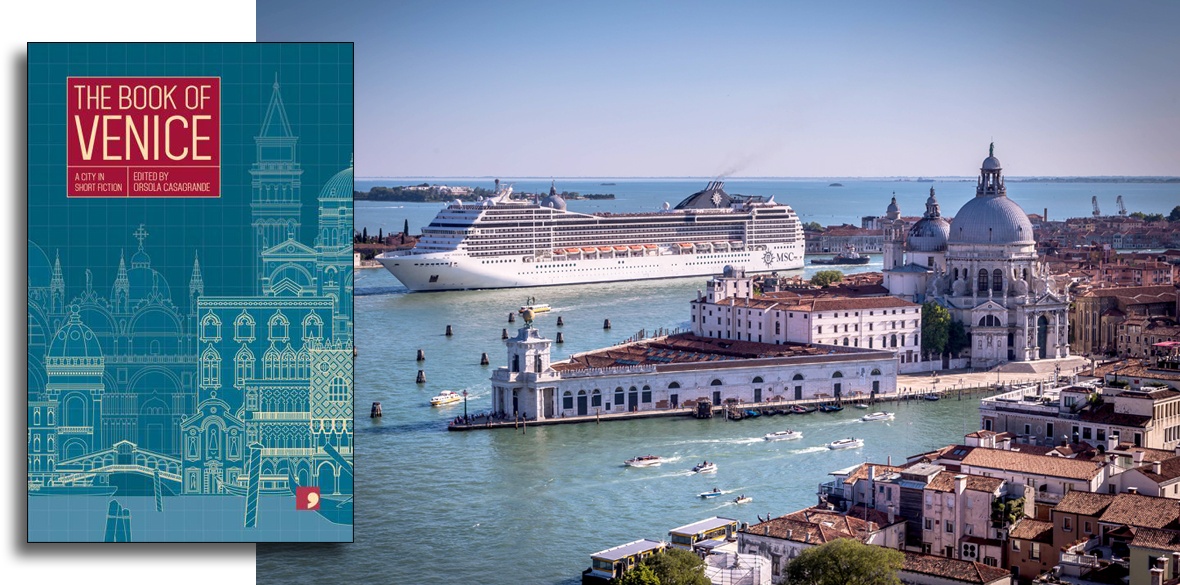This is the last article you can read this month
You can read more article this month
You can read more articles this month
Sorry your limit is up for this month
Reset on:
Please help support the Morning Star by subscribing here
The Book of Venice
Edited by Orsola Casagrande
(Comma Press, £9.99)
“VENICE demands a lot of you. It requires infinite patience, unlimited devotion, if you really want to love it. It demands a lot because it thinks it has a lot to give. Which is often the case.”
So muses a character in post-Zoom reflective mood in Annalisa Bruni’s 25th April 2020, one of 10 contemporary writers featured in this collection of pieces about the iconic — arguably too iconic — Italian city.
The Book of Venice is a welcome eruption of incandescent working-class voices breaking through the sedimentary sludge of syrupy travelogues and self-obsessed novels by, usually foreign, writers. If you’re expecting vignettes in the style of William Ruskin, Thomas Mann, EM Forster or even Jan Morris, you will be abruptly and pleasingly disabused.
In an explanatory piece, less an introduction and more a political manifesto, editor Orsola Casagrande sets the scene with vigour and passion. Venice needs to change, not least it must address its mutually abusive relationship with and reliance upon tourism.
The uneasy balance between residents and the economy that had been maintained for decades collapsed from the 1980s as the civil authorities pursued a turbo-charged programme in favour of footfall before all.
Writing during the first Covid-19 wave, Casagrande offers the prospect of just such a reset as the local economy ceased to function but the natural world reasserted itself as dolphins were spotted in the lagoon and birds not seen for decades returned to the city.
But the focus of most of the accompanying short stories is less about the dialectic between civilisation and nature but rather the struggles, retreats and only occasional victories of Venice’s working class against the behemoths of history and capitalism.
In A Farewell to Venice, Michele Catozzi’s dogged detective Nicola Aldani is galvanised by plans to relocate the police headquarters to Mestre — the “other Venice,” where he lives — following the decanting of so many other administrative functions to maximise the space available to tourist-satisfying businesses.
Head down and metaphorically and sometimes literally barging the “foresti” of tourists out of his path, Aldani ricochets around the city drumming up support for his campaign to halt the relocation.
Catozzi neatly uses this mad dash to namecheck many of the most famous Venetian sight, but in a manner familiar to a local and not an awestruck visitor.
Poignantly, he dines at little-known cafes, all of which are struggling to survive on the declining local trade.
The focus in Gianfranco Bettin’s Beautiful Venice — “La Serenissima” — is the intergenerational relationship between those living in Mestre and the city. The narrator volunteers to help clear an enormous algae bloom and the resulting shoals of dead fish washing up on the latter’s shores.
But during the clean-up operation he sees a discarded shop sign obscured by dirt which becomes the ironic stimulus for a reflection on the city’s real value and challenges.
The voice of the visitor is given primacy in Atmospheric Conditions by Enrico Palandri. A writer looks desperately to Venice to inspire him to complete a commission and more generally revitalise his jaded style. Yet the exploitation that lies at the heart of such a conceit sees him achieving his desire but at the cost of a voyeuristic encounter with two young lovers.
In Lagoon, Robert Ferruci employs a journalistic style to detail the connivance of big business and local elites. He focuses on the cover-ups — and their consequences — instigated by the travel operators and their allies among the Venetian establishment over accidents and pollution caused by the gargantuan liners that cause such havoc along the city’s main canal system.
In so doing, he provides a powerful indictment of a city’s safety being sacrificed as a matter of course. But this authentic and compelling collection of stories about a city and its residents is invaluable in ensuring that they will not be consigned to history without a fight.











